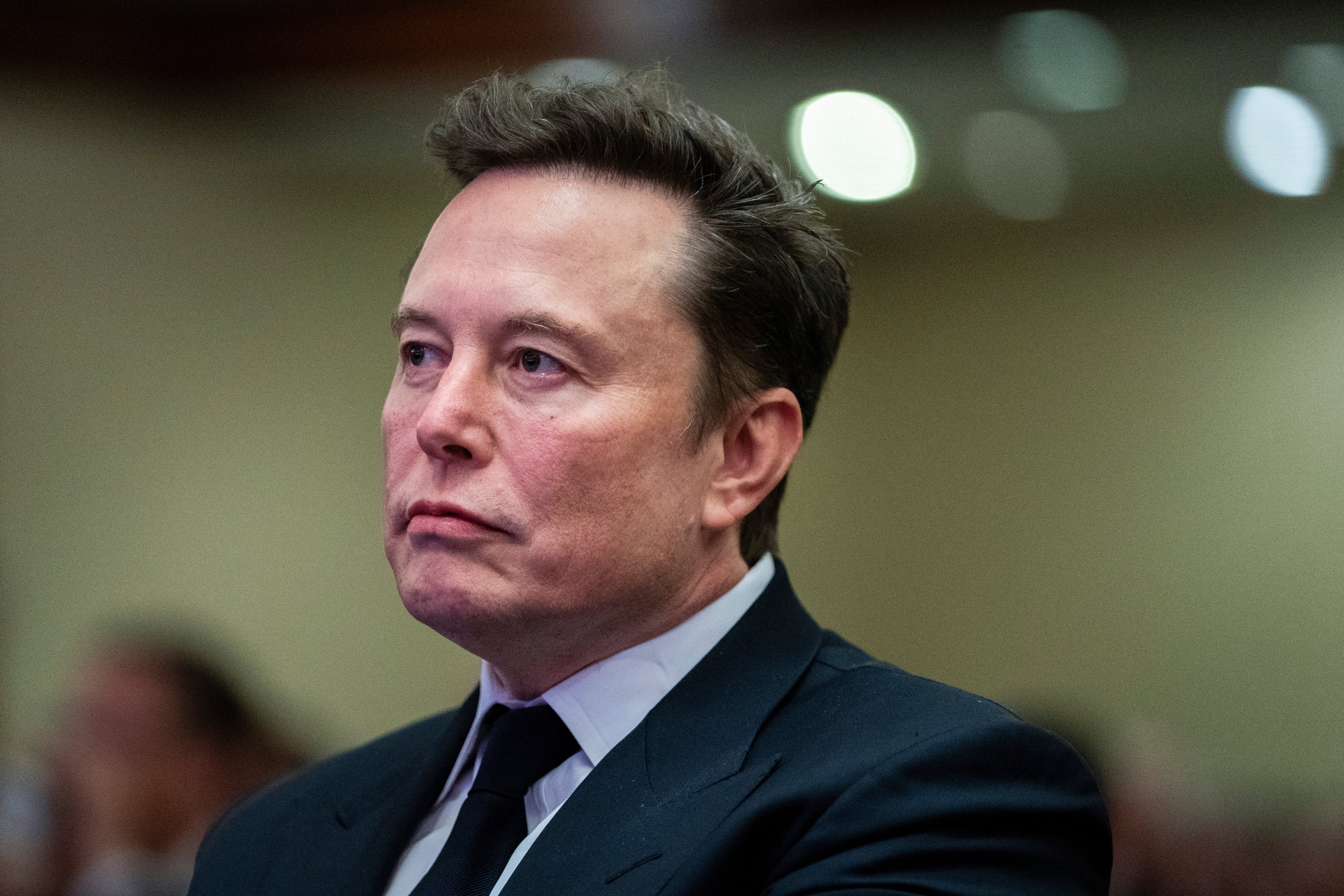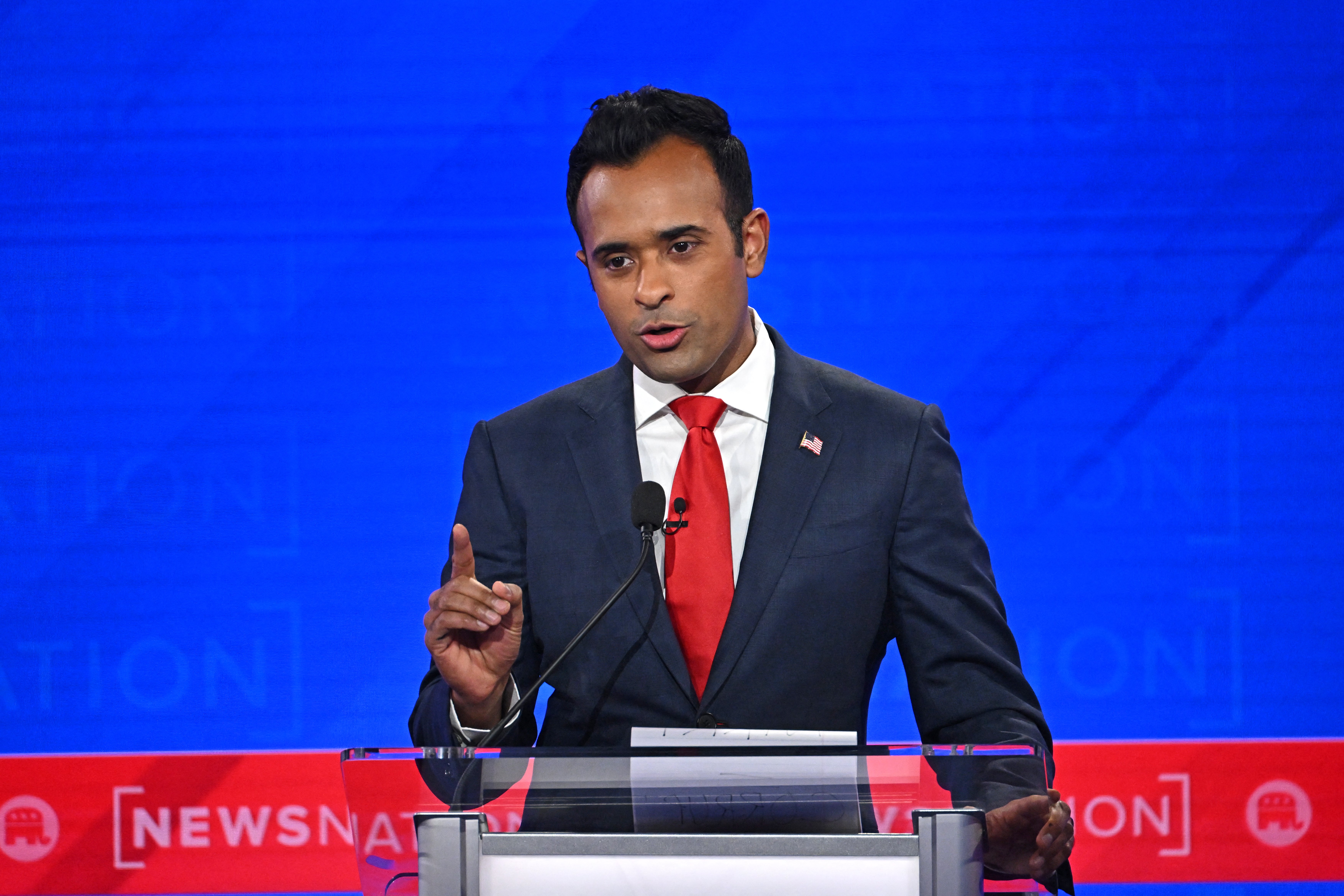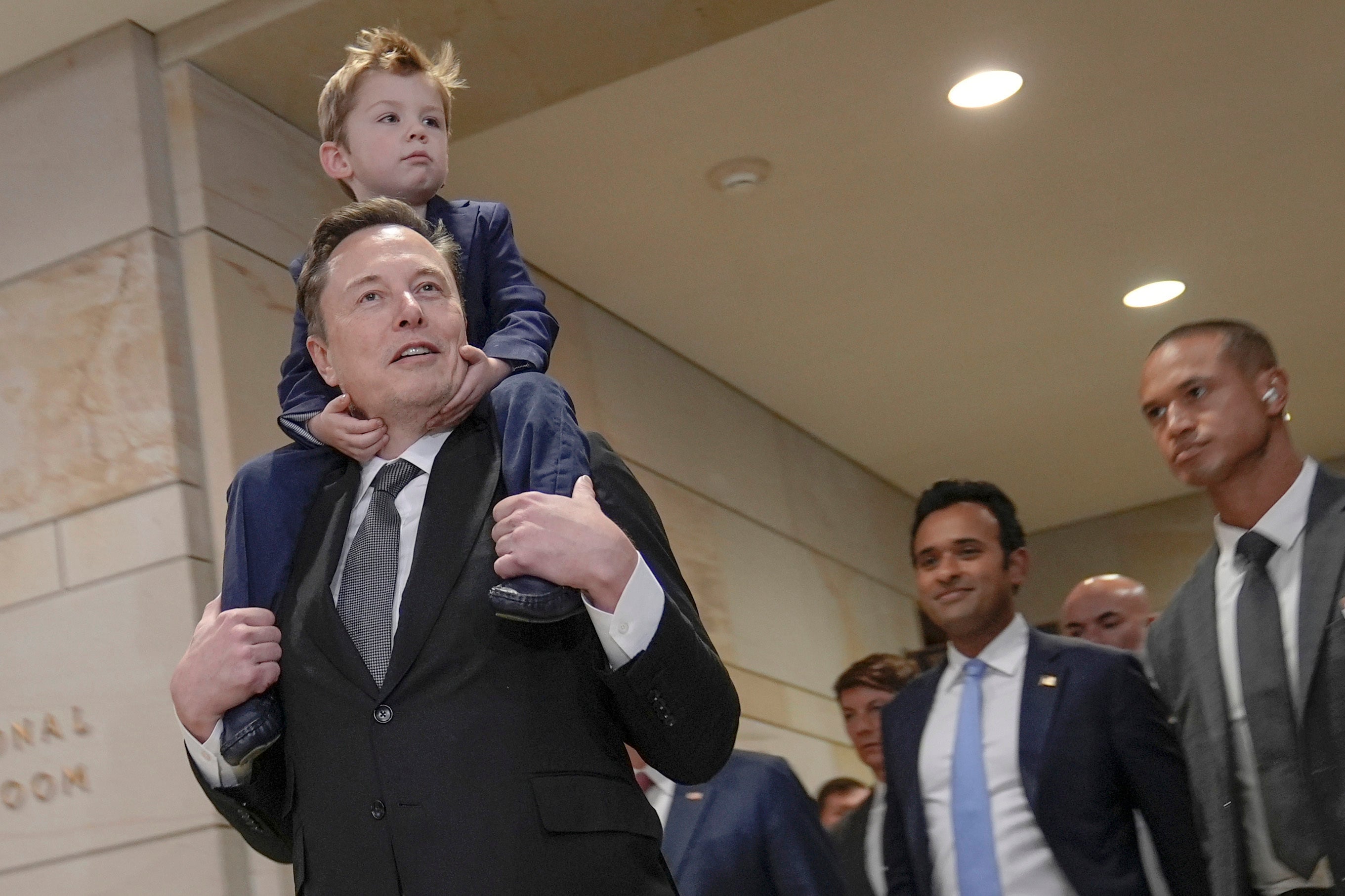Federal employees could be required to return to the office five days per week as a way to reduce its workforce under President-elect Donald Trump’s administration - but economists say that it could also cost the government productivity and money.
Elon Musk and Vivek Ramaswamy, the billionaire entrepreneurs recently bestowed government advisory jobs, said they have several ideas to drastically cut the federal workforce and budget through their newly formed Department of Government Efficiency (DOGE).
One way they could inspire change is by suggesting Trump mandate the approximately 2.28 million employees return to the office five days per week – something they claim will “result in a wave of voluntary terminations.”

“If federal employees don’t want to show up, American taxpayers shouldn’t pay them for the Covid-era privilege of staying home,” Musk and Ramaswamy wrote in an op-ed for the Wall Street Journal.
Currently, more than half of government employees work fully on-site, with approximately 80 percent of regular working hours spent in-person, according to a report from the Office of Management (OMB) and Budget. Only 10 percent of federal workers are fully remote.
Much like companies within the private sector, each government agency creates its own work-from-home policy. But OMB expects each agency to spend 50 percent of work hours in person for those who can.
Elise Gould, a senior economist at the Economic Policy Institute told The Independent that hybrid working boosts the economy because it encourages labor participation with an attractive working environment policy.
“What’s very clear from [Musk and Ramaswamy’s] arguments is that it’s not about productivity or the loss of productivity, it’s essentially about getting rid of federal workers and doing it in a kind of a half-hazard method,” Gould said.
“They’re not looking at the work product of people, they’re not looking at the important work or services people are providing,” she added.

Everett Kelley, the national president of the American Federation of Government Employees (AFGE), the union representing 80,0000 federal employees, said Musk and Ramaswamy’s suggestion is misguided.
“The implication that federal employees writ large are not working in-person is simply not backed up by data and reality,” Kelley said in a statement.
Despite this, Ramaswamy claimed mandating in-person working would thin “25 percent” of the federal bureaucracy.
“That’s a ton of people who could become unemployed because of this policy and that is absolutely not good for the economy,” Gould said. She added that massive turnover can be ‘very costly’,
Both Ramaswamy and Musk have expressed opposition to work-from-home policies. Musk said it hurts communication in the workplace while Ramaswamy claimed it promotes outsourcing jobs to other countries.
But in the OMB report, the agency said hybrid work environments promote “organizational health” and work-life balance.
Gould said evidence shows workers are “quite productive” when working from home and at times, they’re more productive per hour than in the office. She said hybrid work policies also allow those who may not be able to go into an office full-time the opportunity to participate in the labor force.
Nick Bloom, an economics professor at Stanford University, told CNBC that working from home has proven to be “hugely profitable” for private sector companies and will likely remain an option for many companies.
Should the new policy be implemented, and a massive number of federal workers leave, they could flee for more accommodating jobs in the private sector, Gould believes.

“The fact is that people who have better outside options are the ones who are going to be able to leave and those with the better outside options may be the most productive workers that they have,” she said.
Kelley said any changes in working conditions that could impact union contracts would need to be negotiated with the union through the typical collective bargaining process.
Similarly, the National Federation of Federal Employees (NFFE), which represents 110,000 federal workers, told the Wall Street Journal it has consulted with its legal team and plans to push back on any mandate.
“We’re rallying them and getting prepared for a really, really big fight,” Randy Erwin, the union’s national president told the newspaper.
The NFFE and AFGE have both cautioned against massive cuts to the workforce. For one, it would lead to large reductions in government benefits and services that millions of Americans rely on. Additionally, the federal government is the largest employer of veterans and cutting 75 percent of the workforce would leave more than 480,000 vetearn unemployed.







